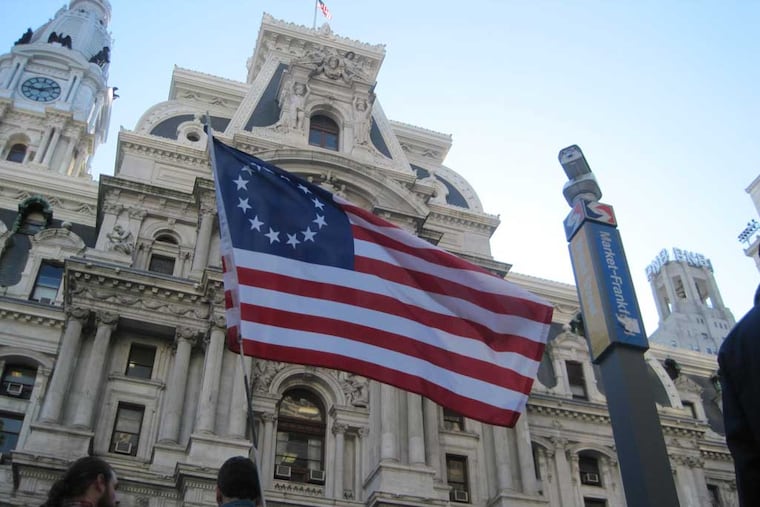City settles gun permit posting suit
When city officials pulled the trigger in 2012 by posting details on gun-permit appeals online, they considered it a public service. Now the data have become a $1.4 million public expense.

When city officials pulled the trigger in 2012 by posting details on gun-permit appeals online, they considered it a public service. Now the data have become a $1.4 million public expense.
The Nutter administration said Tuesday it had settled a class-action lawsuit with 3,265 Philadelphians who were denied a license to carry firearms by the Police Department or had a permit revoked and then appealed to the Department of Licenses and Inspections, which posted the information online.
The postings - on a new interactive website - came as a result of L&I's effort to be more transparent following an executive order on open data signed by Mayor Nutter in April 2012. The department posted several data sets, including gun permit appeals that contained applicants' names, addresses, and appeal information.
The applicants had to describe in the appeal documents why they needed a firearm. Some people stated that they have to carry a lot of cash at night, said Benjamin Picker, one of the lawyers who filed the suit, and making that information public exposed applicants to peril.
City officials "simply didn't do their homework before releasing the data," Picker said. "It was a road map for criminals."
What's more, the plaintiffs' lawyers said, the Pennsylvania Uniform Firearms Act has a confidentiality provision that "all information provided by the potential purchaser, transferee or applicant, including but not limited to, the potential purchaser, transferee or applicant's name or identity . . . shall be confidential and not subject to public disclosure."
Craig Straw, the city lawyer who handled the case, said there was some ambiguity in the law, including whether appeal information is confidential.
The website was taken down after three days.
"There was some consultation, but there was miscommunication among all the parties," Straw said, adding that the Police Department requested that the information be taken down.
"It was decided we should take the website down just to err on the side of being cautious," Straw said.
The settlement, reached last month, must still be approved by Common Pleas Court Judge Jacqueline Allen. The city admitted no fault.
The settlement calls for applicants whose personal information was made public to be compensated with cash. The 2,188 people whose information was part of the live database will receive about $440 each. The 1,077 people who are part of a separate class in the lawsuit - those whose information was kept in a city database accessible to city employees and contractors, but not posted online for the general public - will receive $25 each.
The confidentiality provision of the state gun law, the plaintiffs' lawyers said, states that any person or government agency that violates the confidentiality subsection must pay $1,000 in damages per occurrence or "three times the actual damages incurred as a result of the violation, whichever is greater."
The $440 and $25 the defendants will get in this case was a compromise, attorneys on both sides said.
The settlement also includes various policy changes, including faster processing of applications for a license and permit confidentiality training for the Police Department.
If the court approves the settlement, checks will be mailed to all 3,265 people on file. If checks are not cashed or deposited within 90 days of mailing, the uncollected funds will be dispersed equally among three funds: the NRA Civil Rights Defense Fund, the Philadelphia NRA Eddie Eagle Program, and the School District of Philadelphia
The plaintiffs' attorneys said that policy and administrative changes promised by the city were more significant than the money.
"The settlement allows people with very different views to be around this highly politicized object in a way that makes everyone safer because rules of engagement are clearer," Jonathan Goldstein, one of the attorneys, said.